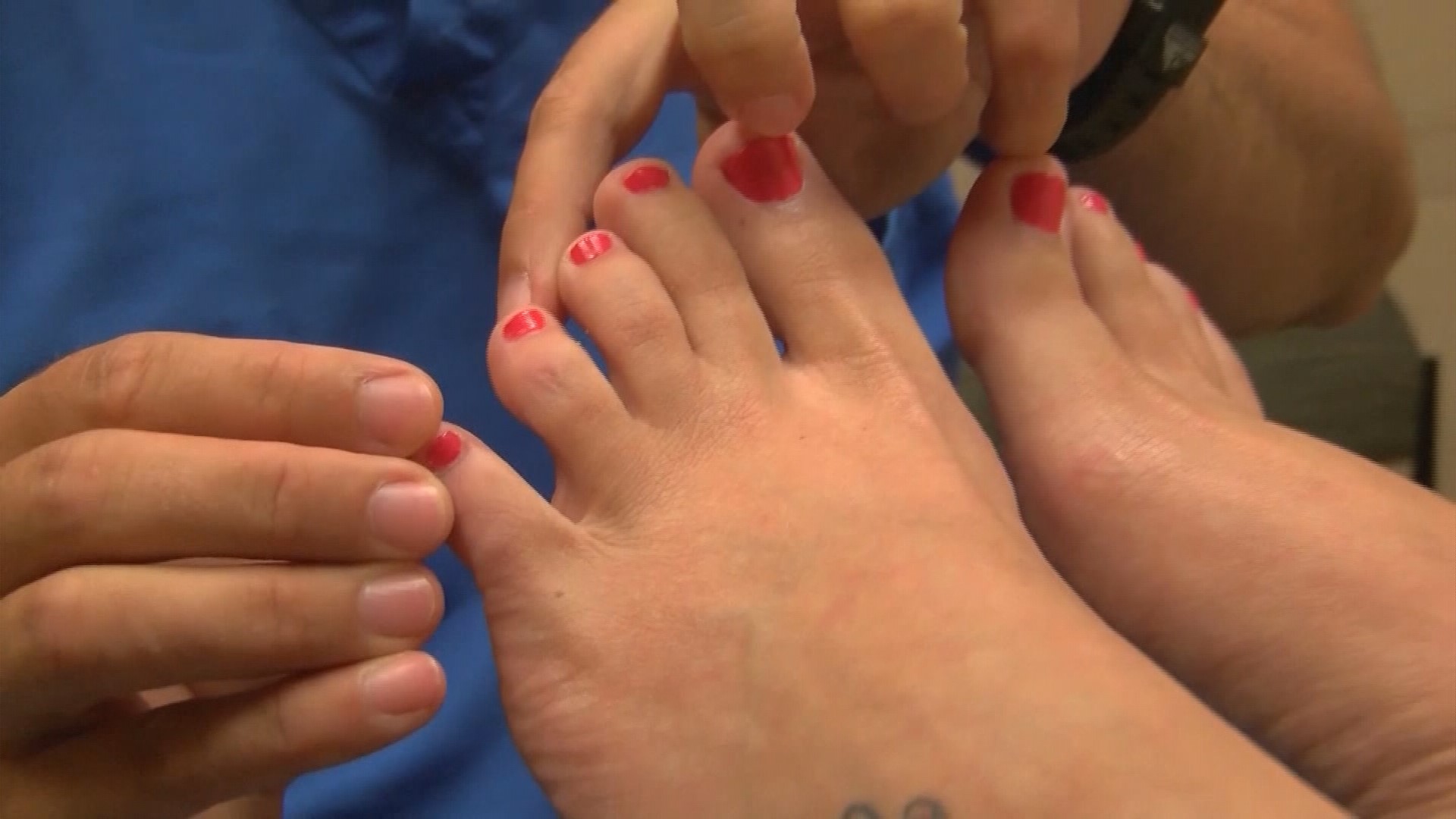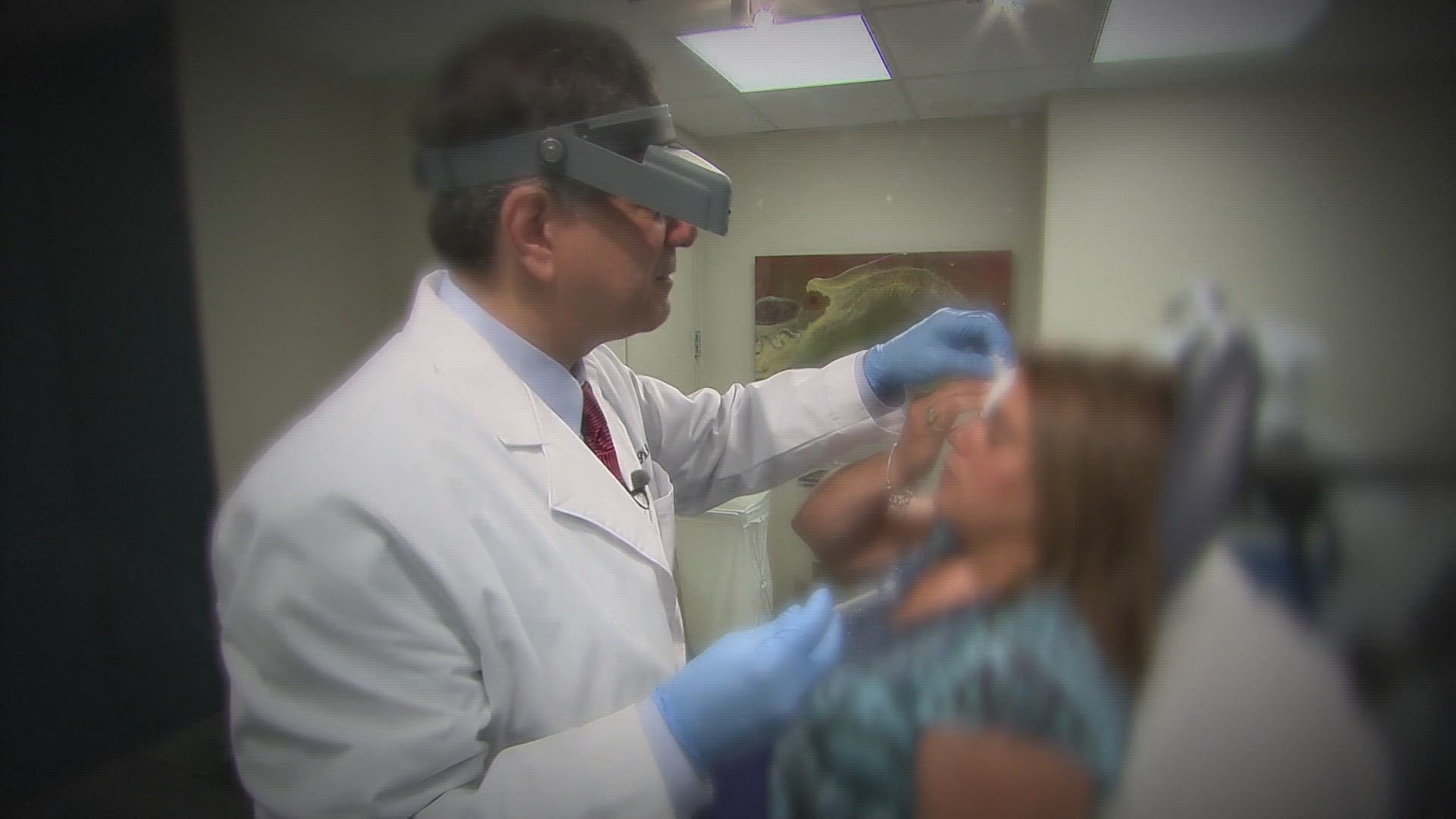Athlete's foot is a contagious fungal infection that affects the skin on the feet and can spread to the toenails.
"A lot of people know it from dry, itchy areas between the toes that they can’t get rid of. They put powder on it, they put things over-the-counter on it and it just kinda festers," Dr. Tyson Green, a foot and ankle specialist at the Center for Orthopedics said.
He said it's called athlete's foot because it's commonly seen in athletes, but anyone, particularly in the hot, summer months, can contract it.
"You see it in people who have a job that they sweat a lot. Within boots, within cleats in athletes. We'll see a lot of different redness areas of infection on there," Green said.
The fungal infection is spread through contact, but it's more itchy than it is painful.
"When it's itching a lot, then you start scratching it and then it starts irritating, and then it starts hurting. But the first signs and symptoms are itchy, maybe some redness. Some people in between the toes it'll look like you sat in the bathtub for a long time. You know we get prune hands -- you'll get some little areas of maceration between the toes," Green explained.
One of the most common reasons athlete's foot lingers is because people don't treat their shoes, so they re-infect their feet.
Here's what doctor Green suggests:
"You can take wadded up newspaper or paper towels and spray them down with Lysol and stuff them in the shoes and just leave them there overnight. That'll kill the fungus in there. It'll also kill other bacteria. One of the neat ways of doing it is taking your shoes and putting them in a garbage bag and sticking them in a deep freezer overnight," Green said.
That kills the fungus and the bad shoe smell. If you take those steps and use over-the-counter antifungals, your infection should clear within a couple of weeks. If it doesn't, you might need a prescription medication or it could be a sign of a different skin condition.
Remember, it’s always recommended that you protect your feet from contamination at a public gym or swimming pool by wearing flip flops or sandals.


